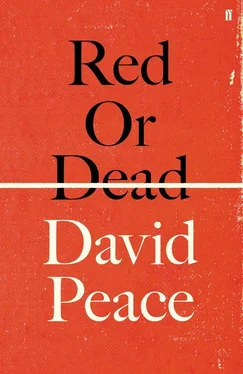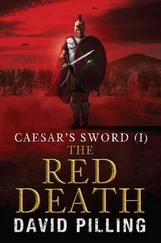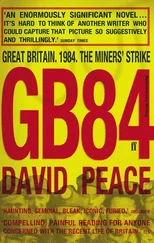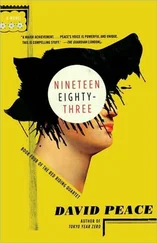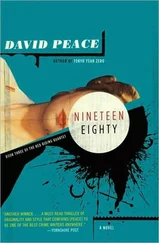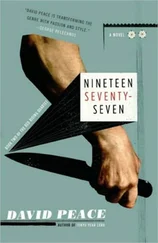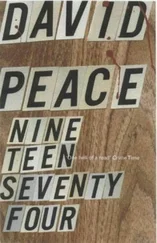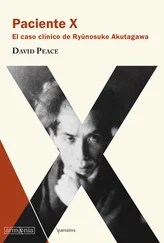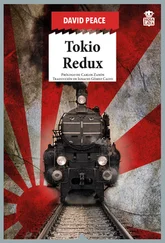Dixon, Walden, Walker, Joslyn, Dean, Giles, Walton, Brown, Howarth, Melia and Brodie. That is the Aldershot team, boys. That is who you are playing today. Now you’ll all recognise one of those names, boys. The name of Jimmy Melia. And you all know Jimmy played two hundred and eighty-six times for Liverpool Football Club and scored seventy-nine goals for Liverpool Football Club. Two hundred and eighty-six times, boys. And seventy-nine goals. And so Jimmy knows everything there is to know about Liverpool Football Club, boys. But today Jimmy is the captain of Aldershot Football Club. And Jimmy will have told his teammates all there is to know about Liverpool Football Club. He will have told them about you and he will have told them about the crowd. About what they can expect when they play Liverpool Football Club, when they come to Anfield. And he will be settling their nerves, telling them they have nothing to lose. That this is the biggest game of their lives, the greatest day of their careers. Telling them to go out there and enjoy the game, telling them to go out there and savour the day. But we know very little about the other players of Aldershot Football Club. About Dixon, Walden, Walker, Joslyn, Dean, Giles, Walton, Brown, Howarth and Brodie. All we know is that they are in the Fourth Division. But that means nothing today, boys. Because this is not the League. This is the Cup, boys. But the expectation is still on us, boys. The pressure is on us. But I tell you this, boys. I tell you this: if we treat those players with the same respect we would treat the players of Manchester United. The players of Leeds United. And if we play like we would play against Manchester United. Against Leeds United. Then I know we will win. If we struggle and if we try. We will win, boys. We will win. Because we play for Liverpool Football Club. Because we are Liverpool Football Club. And this is Anfield. And we treat every player who comes to Anfield with respect. Every team that comes to Anfield with respect. Because we are not complacent, boys. But we are not afraid either. And that is how we win, boys. With respect. And with graft. And with skill, boys. That is how we win …
On Saturday 2 January, 1971, in the Third Round of the FA Cup, in the twenty-eighth minute, John McLaughlin scored. And Liverpool Football Club beat Aldershot Football Club of the Fourth Division one — nil in the Third Round of the FA Cup. At home, at Anfield. And the players of Liverpool Football Club shook hands with the players of Aldershot Football Club. And the supporters of Liverpool Football Club applauded the players of Aldershot Football Club. And then the supporters of Liverpool Football Club sang, Ee-aye-addio, we’re going to win the Cup. We’re going to win the Cup. Ee-aye-addio, we’re going to win the Cup …
That same day, that same Saturday. Sixty-six men and boys had woken up. In their beds. Those sixty-six men and boys had eaten their breakfasts and their lunches with their families. In their kitchens. Those sixty-six men and boys had joked and talked with their families. In their homes. Those sixty-six men and boys had said goodbye to their families. See you later. In their halls. Those sixty-six men and boys had walked out of their doors, walked out of their houses and caught a bus, caught a train. In the mist. Those sixty-six men and boys had gone to see a football match between Rangers and Celtic at Ibrox Stadium, in Glasgow, in Scotland. In the mist. The sixty-six men and boys had paid at the turnstiles to Ibrox Stadium. In the mist. The sixty-six men and boys had stood and watched the football match between Rangers and Celtic. In the mist. The sixty-six men and boys had seen Celtic score, had seen Rangers equalise, and had heard the final whistle. In the mist. The sixty-six men and boys had made their way to the top of the terracing, made their way to stairway thirteen. In the mist. The sixty-six men and boys felt the crowd getting tighter and tighter at the top of stairway thirteen. In the mist. The sixty-six men and boys felt the weight of the people behind them. In the mist. The sixty-six men and boys felt themselves being carried over the top of the stairs. In the mist. The sixty-six men and boys felt their feet begin to leave the ground. In the mist, on the stairs. The sixty-six men and boys began to fall forward. In the mist, on the stairs. The sixty-six men and boys felt the crowd stop moving but the pressure increase. In the mist, on the stairs. And increase. In the mist, on the stairs. And increase. In the mist, on the stairs. The sixty-six men and boys heard the cries and the screams around them. In the mist, on the stairs. The sixty-six men and boys heard the cries and the screams stop. In the mist, on the stairs. The sixty-six men and boys heard the silence, only the silence. In the mist, on the stairs. The sixty-six men and boys felt the breath begin to leave their bodies. In the mist, on the stairs. The sixty-six men and boys felt the life being squeezed out of them. In the mist, on the stairs. The sixty-six men and boys felt the life leave them. In the mist, on the stairs. The sixty-six dead men, boys and one young woman were lifted from the stairway. In the mist. The sixty-six dead men, boys and one young woman were carried down the terracing. In the mist. The sixty-six dead men, boys and one young woman were laid on the edge of the pitch. In a row. In the mist. The black-and-white mist. The sixty-six dead men, boys and one young woman who had gone to see a game of football on Saturday 2 January, 1971. In the mist. The black-and-white mist. In a row. In the mist. The black-and-white mist. The sixty-six dead men, boys and one young woman who had been crushed and asphyxiated under the weight of thousands of other bodies in stairway thirteen at Ibrox Stadium, in Glasgow, in Scotland. In the mist. The black-and-white mist. In the evening, that Saturday evening. In their house, in their front room. Bill Shankly tried to get to his feet. Bill Shankly tried to stand. To walk to the television, to turn off the television. The pictures. The black-and-white pictures. His jumper stuck to his shirt. His shirt stuck to his vest. His vest stuck to his skin. Bill Shankly could not get to his feet. Bill Shankly could not stand. And Bill Shankly turned to his wife. Bill Shankly tried to speak. To find the words. The words for his wife. The words for Jock. The words for Willie Waddell, the manager of the Rangers Football Club. The words for the people of Glasgow. The people of Scotland. But Bill Shankly could not speak. Bill Shankly could not find the words. That evening, that Saturday evening. In their house, in their front room. There were no words. There were only pictures. Black-and-white pictures. Pictures and silence,
silence and tears.
…
On Saturday 9 January, 1971, Blackpool Football Club came to Anfield, Liverpool. That day, forty-two thousand, nine hundred and thirty-nine folk came, too. In the thirty-eighth minute, Steve Heighway scored. But Blackpool Football Club scored, too. And Blackpool Football Club scored again. And in the eighty-second minute Blackpool scored again. An own goal. And Liverpool Football Club drew two-all with Blackpool Football Club. At home, at Anfield. Another draw. Three days afterwards, Manchester City came to Anfield, Liverpool. That night, forty-five thousand, nine hundred and eighty-five folk came, too. But Liverpool Football Club did not score. And Manchester City did not score. And Liverpool Football Club drew nil — nil with Manchester City. At home, at Anfield. Another draw. Another goalless draw. Four days later, Liverpool Football Club travelled to Selhurst Park, London. And again Liverpool Football Club did not score. But Crystal Palace did score. And Liverpool Football Club lost one — nil to Crystal Palace. Away from home,
away from Anfield.
On Saturday 23 January, 1971, Swansea City came to Anfield, Liverpool. That afternoon, forty-seven thousand, two hundred and twenty-nine folk came to Anfield, too. Forty-seven thousand, two hundred and twenty-nine folk to watch Liverpool Football Club play Swansea City of the Third Division in the Fourth Round of the FA Cup. And that afternoon, in the first half of the Fourth Round tie of the FA Cup, Liverpool Football Club did not score. But in the fifty-third minute, John Toshack scored. And in the seventy-sixth minute, Ian St John came on for Ian Callaghan. And in the eighty-fifth minute, Ian St John scored. His one hundred and eighteenth goal for Liverpool Football Club in his four hundred and twenty-fifth appearance for Liverpool Football Club. And in the eighty-seventh minute, Chris Lawler scored. And Liverpool Football Club beat Swansea City of the Third Division three — nil in the Fourth Round of the FA Cup. At home, at Anfield. The supporters of Liverpool Football Club applauded the players of Swansea City. And then the supporters of Liverpool Football Club sang, Ee-aye-addio, we’re going to win the Cup —
Читать дальше
